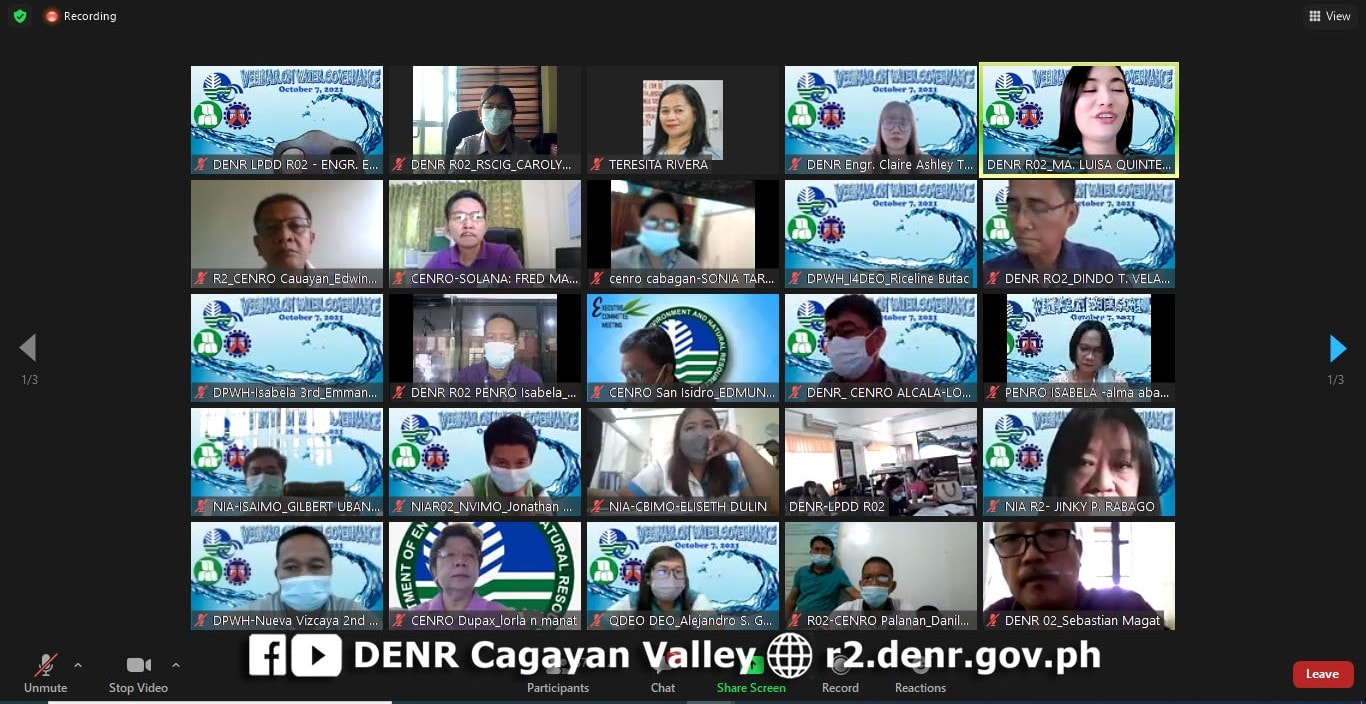
REINFORCING WATER RESOURCE REGULATION. The Department of Environment and Natural Resources (DENR) Region 2 and National Water Resources Board (NWRB) recently conducted a webinar on water governance for deputized agencies to facilitate acceptance and processing of water permits.
In her message, DENR Regional Executive Director Gwendolyn Bambalan emphasized for a continued protection of rivers and watersheds as these serve as main water resource for domestic needs and for agriculture, industry and power generation purposes.
“Water is life. It is vital that we know its proper uses and regulations to improve our processes in accepting water resource application,” Director Bambalan said as she appreciated the NWRB for delegating water resource regulation in the regional level to help the government generate additional revenue from the permits issued.
She acknowledged and cited the functions of the Water Regulation Utilization Section (WRUS) as the NWRB deputy and the forefront in building a deeper understanding on the importance of water regulation aside from facilitating the issuance of water permit.
Licenses, Patents and Deeds Division (LPDD) Chief Eliseo Mabasa acknowledged the support of the Department of Public Works and Highways and the National Irrigation Administration.
He said their functions was created by virtue of NWRB Resolution No. 15-1116 or the Deputation of Regional Offices on Certain Functions of Water Use Regulation.
To date, the DENR Region 2 had accepted 134 water permit applications which were endorsed to the NWRB for approval and issuance of water permit. This activity was started since the creation of WRUS in 2015 as a result of the department’s Rationalization Program.
NWRB officials Susan Abaňo, Josephine Bellones, Milagros Velasco, Mary Jane Dominguez, Ma. Nerizza Berdin, Marianne Yumul and Micah Laurel served as resource persons who discussed Integrated Water Resources Management; Water Permit Application and Processes; Certificate of Public Convenience Requirements and Processing; Monitoring, Enforcement, Procedures and Processes; and Approved Policies, respectively.#
- Details
- Parent Category: News & Events
- Category: Photo Releases
- Published: 25 October 2021
- Hits: 1483